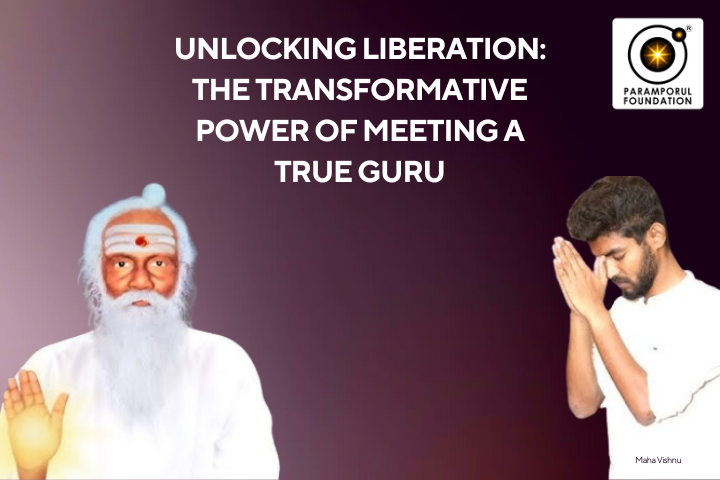A guru plays a crucial role in guiding a seeker toward spiritual enlightenment. While yogic practices and philosophical teachings provide knowledge, true transformation happens only when one surrenders completely to the guru. This surrender paves the way for divine connection, leading to liberation and moksha.
Why Do You Need a Guru?
A guru is not just a teacher but a spiritual catalyst who helps dissolve your karma. They have already walked the path of liberation and can guide you effortlessly. Without surrendering to a guru, spiritual progress remains incomplete. While one may practice meditation or seek wisdom from scriptures, true realization comes only when the guru uplifts the seeker through their grace and energy.
The Power of Deeksha: Connecting with the Divine Frequency
When a guru bestows Deeksha (spiritual initiation), they align the seeker with a higher divine frequency. This connection helps in transcending worldly distractions and moving towards self-realization. The guru ensures that the disciple progresses, often in ways they may not even realize. Through this divine intervention, seekers advance on their spiritual path without unnecessary struggles.
The Illusion of Money and the Power of the Present Moment
In today’s fast-paced world, people are constantly chasing money. While financial stability is essential, it is not the ultimate purpose of life. True wisdom lies in living in the present moment without excessive worry about the future. Many times, our plans do not unfold as expected, and when they do, it is often due to divine blessings rather than personal effort.

Understanding the Mind: The Role of Yogic Meditation
Practicing yogic meditation allows seekers to develop heightened awareness. Often, it may seem like our thoughts shape reality, but in truth, we are merely perceiving what is destined to unfold. The doer of all actions is the divine, not the individual. When we truly surrender, things happen effortlessly.
Managing Anger: A Selfless Perspective
Anger is a natural emotion, but it should not be driven by ego or selfishness. Instead, anger should be selfless and directed toward the welfare of others. Most people react angrily when triggered, thereby accumulating karma. However, expressing anger without personal attachment does not bind the individual to karmic consequences.
Conclusion
Meeting a guru is about gaining knowledge and experiencing true transformation. Through Deeksha, surrender, and mindful living, seekers can transcend their karma and move toward liberation. Living in the present, understanding divine will, and managing emotions like anger with selflessness are key steps in realizing the ultimate truth.

